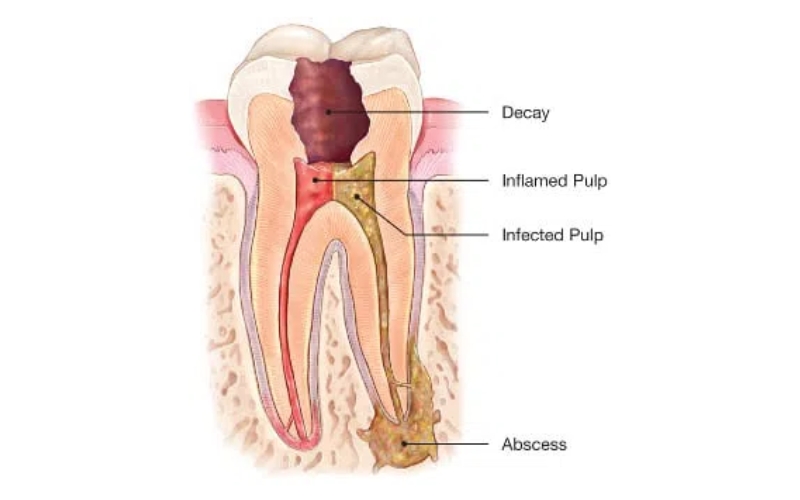Can Root Canals Last a Lifetime?

Introduction
A visit to the dentist often elicits mixed emotions, from the dreaded sound of the drill to the relief that comes after a successful dental procedure. Root canals, in particular, are notorious for their reputation of causing discomfort. However, they are crucial in saving teeth and preventing more invasive treatments. But can a root canal last forever? In this blog, we will explore the factors affecting the longevity of root canals and offer tips to increase their lifespan.
Can a Root Canal Last Forever?
The notion of any medical or dental procedure lasting a lifetime is a topic of intrigue. A root canal is no exception. While “forever” may be a stretch, root canals are designed to have a long and durable lifespan. When performed by skilled professionals at places like Spring Valley Dental Care, root canals can provide relief and functionality for many years, potentially even a lifetime.
Factors That Affect the Longevity of Root Canals
Several factors come into play when determining how long a root canal can last:
1. Tooth Quality:
The overall health and quality of the tooth undergoing a root canal can significantly impact the procedure’s longevity. A healthy tooth structure is more likely to endure the test of time.
2. Dental Expertise:
The skill and experience of the dentist performing the root canal are pivotal. Thorough cleaning of the root canal system, precise filling, and sealing are crucial for long-lasting success.
3. Restoration:
Following a root canal, the tooth is usually repaired with a crown. The quality of this restoration and how well it is maintained can significantly affect the longevity of the root canal.
4. Oral Hygiene:
Patient responsibility is a key factor. Regular and proper oral hygiene practices, such as brushing, flossing, and routine check-ups, can ensure the longevity of a root canal.
5. Secondary Infections:
In rare cases, secondary infections or complications may arise, leading to a root canal failure. It is critical to handle any unexpected symptoms as soon as possible.
6. Chewing Habits:
Excessive pressure on a tooth can lead to premature wear and tear. Chewing hard foods or grinding teeth can reduce the lifespan of a root canal.
7. Medical Conditions:
Some systemic medical conditions, such as diabetes, can affect the healing of root canals and longevity.
Signs of a Root Canal Failure
To understand whether a root canal has failed, it’s crucial to recognize the signs:
1. Persistent Pain:
If you experience consistent pain or discomfort around the treated tooth could be a sign of a problem.
2. Swelling or Infection:
Swelling or an abscess in the treated area could indicate an issue.
3. Sensitivity:
Increased sensitivity to hot or cold substances may suggest a problem with the root canal.
4. Tooth Discoloration:
A change in tooth color could be a sign of infection or issues with the root canal.
5. Loose Crown:
If the crown becomes loose or falls off, it can further expose the tooth to damage.
6. X-ray Abnormalities:
X-rays may reveal any abnormalities or complications in the treated area.
Tips To Increase The Life Of Root Canals
If you’ve had a root canal or are considering one, here are some tips to ensure its longevity:
1. Regular Check-ups:
Schedule routine dental check-ups to monitor the condition of your treated tooth.
2. Maintain Oral Hygiene:
Brush and floss your teeth regularly and use an antiseptic mouthwash to prevent infections.
3. Protect Your Teeth:
Avoid using your treated tooth to chew hard or tough foods, and consider a mouthguard if you grind your teeth at night.
4. Stay Hydrated:
Adequate hydration helps maintain overall oral health.
5. Healthy Diet:
Consume a balanced diet low in sugary foods and drinks, as they can promote tooth decay.
6. Address Problems Promptly:
If you notice any signs of a failed root canal, consult your dentist immediately.
7. Smoking and Alcohol:
Reduce or eliminate smoking and alcohol consumption, as these can negatively impact the longevity of your root canal.
8. Medical Management:
If you have underlying medical conditions like diabetes, ensure you manage them effectively to promote better healing.
9. Stress Reduction:
High-stress levels can lead to teeth grinding and clenching, which can damage the treated tooth—practice stress reduction techniques to protect your dental health.
10. Crown Maintenance:
Care for your crown by avoiding chewing on hard objects and regularly checking for any signs of wear or damage.
In conclusion, whether root canals can last a lifetime is nuanced. While they are designed to be long-lasting and can indeed provide many years of relief and functionality, several factors influence their lifespan. The quality of the tooth, dental expertise, restoration, oral hygiene, and patient responsibility all play pivotal roles. By choosing reputable professionals like Spring Valley Dental Care, maintaining oral hygiene, and promptly addressing any issues, you can maximize the chances of your root canal lasting many years.
Dental health is a lifelong commitment; your root canal can serve you well with the right care. So, can root canals last a lifetime? While the answer may not be a definitive “yes,” with the right approach and maintenance, they can certainly last a very long time, ensuring you maintain a healthy and functional smile for years. If you’re considering a root canal or need to consult a dentist, don’t hesitate to contact the experts at Spring Valley Dental Care. They are committed to providing top-notch dental care and ensuring that your dental procedures stand the test of time. Your dental health is their priority, and they are here to help you achieve the longevity and comfort you desire.
